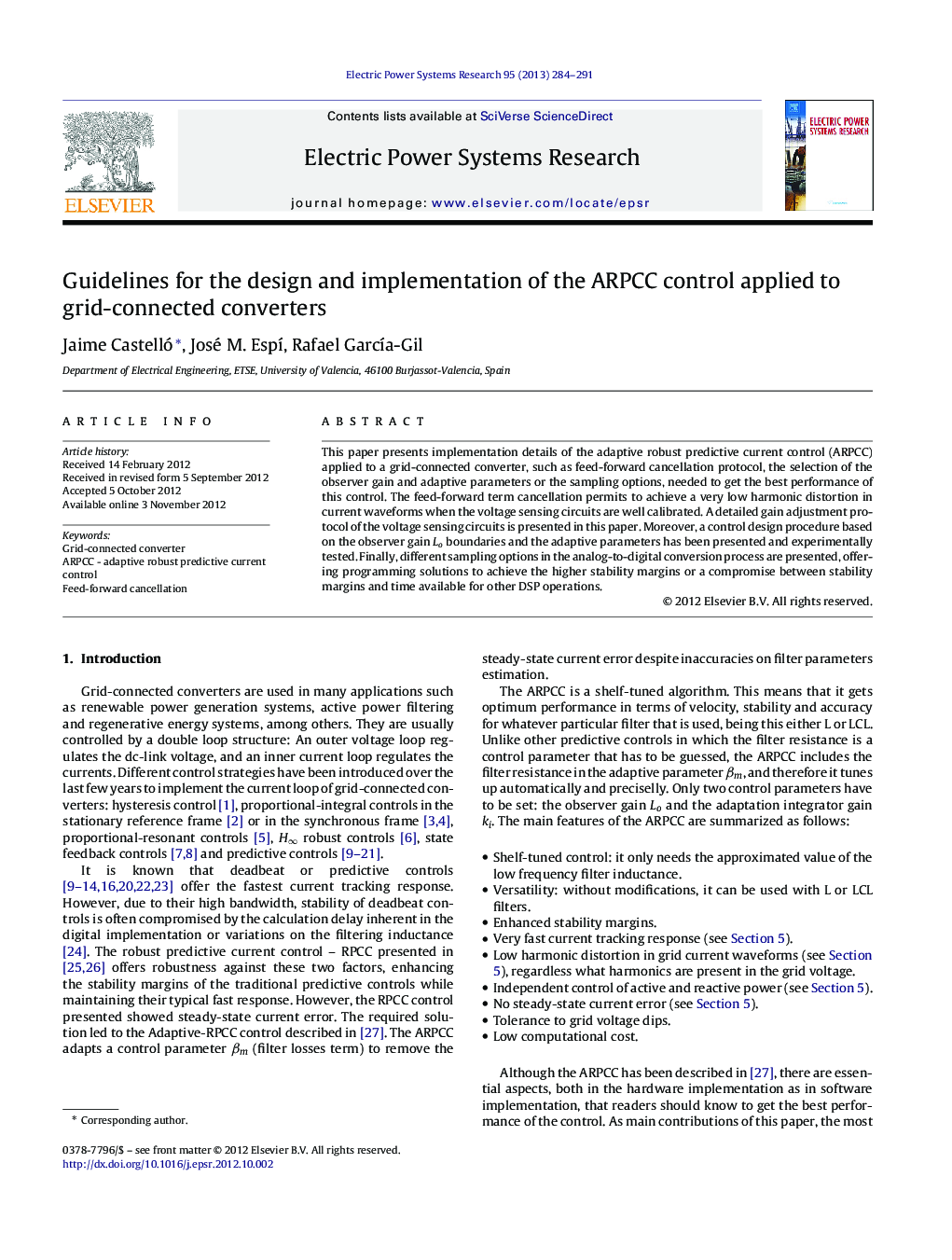| کد مقاله | کد نشریه | سال انتشار | مقاله انگلیسی | نسخه تمام متن |
|---|---|---|---|---|
| 705334 | 1460918 | 2013 | 8 صفحه PDF | دانلود رایگان |

This paper presents implementation details of the adaptive robust predictive current control (ARPCC) applied to a grid-connected converter, such as feed-forward cancellation protocol, the selection of the observer gain and adaptive parameters or the sampling options, needed to get the best performance of this control. The feed-forward term cancellation permits to achieve a very low harmonic distortion in current waveforms when the voltage sensing circuits are well calibrated. A detailed gain adjustment protocol of the voltage sensing circuits is presented in this paper. Moreover, a control design procedure based on the observer gain Lo boundaries and the adaptive parameters has been presented and experimentally tested. Finally, different sampling options in the analog-to-digital conversion process are presented, offering programming solutions to achieve the higher stability margins or a compromise between stability margins and time available for other DSP operations.
► The paper has been focused on the implementation details of the ARPCC.
► Feed-forward cancellation protocol reduces the THD in current waveforms.
► The observer gain Lo determines the stability margins of the ARPCC.
► The stability margins of the ARPCC are reduced as delay time td is increased.
► Delay time can be adjusted selecting the start sequencer of the ADC within the interrupt routine.
Journal: Electric Power Systems Research - Volume 95, February 2013, Pages 284–291